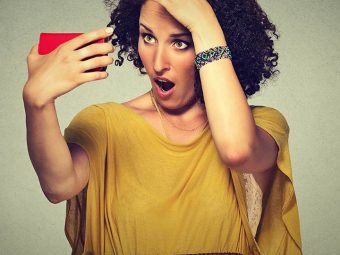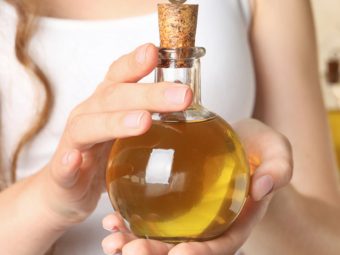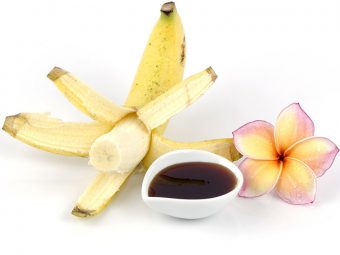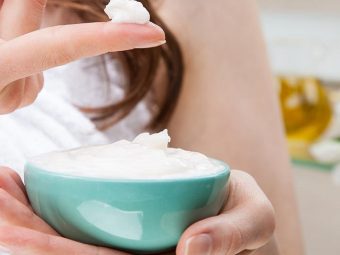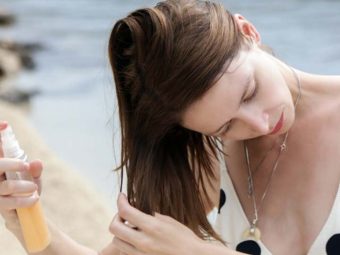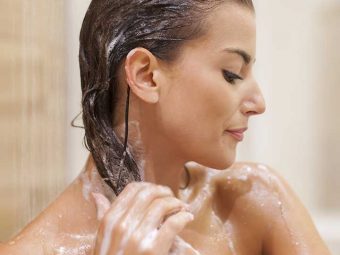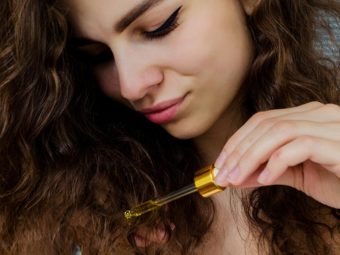4 Side Effects Of Hair Gels You Should Be Aware Of
Learn the potential dangers of using too much, too frequently if you want to preserve your hair health.
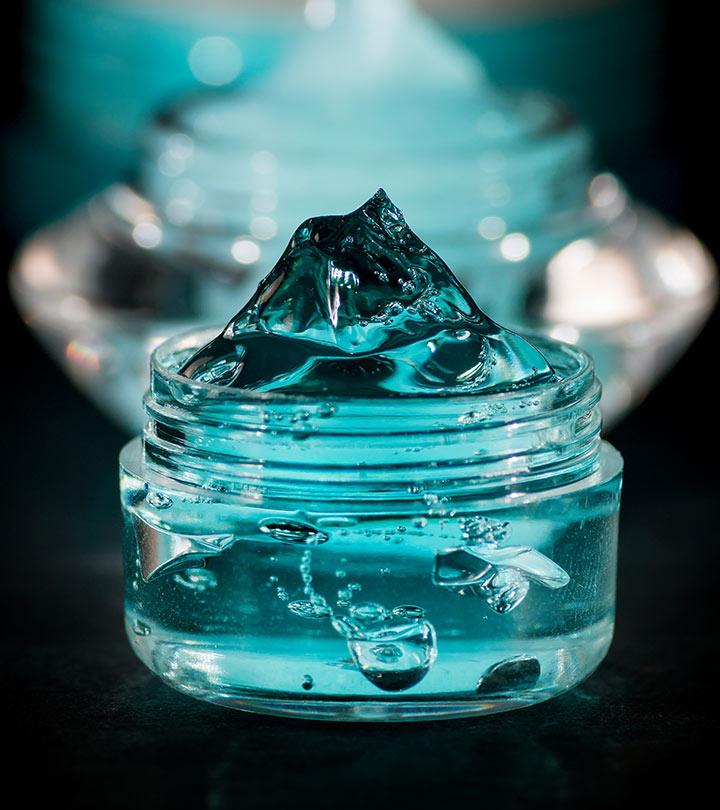
If you love to style your hair but are worried about the multiple side effects of hair gels, worry not! We are here to help you understand major issues with hair gels and how you can circumvent them. Most of us strive for an elegant, neat, and appropriate appearance throughout the day. It comprises good attire, a well-done face, and neatly styled hair. Hair is one of the most important aspects of a person’s personality and looks, but it is also difficult to maintain. Hair gels take care of the difficult process of properly styling and holding the hair in place.
Hair gels are hair styling treatments that harden and manage the hair into various hairstyles. Historical research shows that people have utilized natural hair gels since the ancient Egyptian and Greco-Roman periods (1). But, the conventional hair gel was produced in the 1960s by Luis Montoya of the U.S.A. and sold under the brand name DEP, which stood for the main ingredient in the product, diethyl phthalate, that gave it its distinct non-sticky texture. Ordinary gels are primarily made up of cationic polymers, which have positive charges that give the gel its stiffness, allowing it to easily bond to the hair shaft, letting it flex and keep its place for extended periods (2).
These gels aid in hairstyling, making hairstyles last longer, improving their texture, giving tresses a pleasant sleek look, making the hair and face look presentable and groomed, and boosting an individual’s overall persona. But on the other hand, hair gels are considered to have negative consequences on the hair, scalp, and body due to the presence of toxic chemicals. The following are some of the negative consequences of hair gel. Keep reading.
In This Article
Hair Gel Side Effects
1. Drying and dehydrating the hair:
Hair gels contain alcohol and corrosive chemicals that strip off moisture from the hair and scalp and make them dry and dehydrated. These gels mess with the moisture levels and reduce the production of sebum creating dry, brittle and and breakage-prone hair that give rise to problems of itchy and flaky scalp. They make the hair frizzy, thereby giving rise to unmanageable, dry, rough, limp, and lustreless tresses (3), (4).
2. Hair Loss:
These gels dehydrate the hair and scalp, thereby making the hair prone to breakage and fall. The chemical compounds present in these gels along with external pollutants together react with the dead cell build-up and excess sebum on the scalp. This clogs the hair follicles and eventually causes hair fall. Excess and prolonged hair fall can lead to problems like receding hairline, baldness, etc (5), (6).
3. Dandruff:
A dehydrated, undernourished, and infected scalp is characterized by irritation, itchiness, and flakiness of the scalp leading to dandruff. Improper production of sebum, unhealthy and clogged skin pores and hair follicles, weakened hair roots all together cause and aggravate the problem of dandruff, Seborrhoeic dermatitis or inflammation in the scalp which can further lead to other skin diseases like acne (7), (8).
4. Discoloration and damage:
Damage, split ends, thinning, and discoloration of hair are also common side effects of using hair gels. These gels rip off the nourishment and moisture content of the hair, break and strip them, disturb the pH balance of the hair and make them unhealthy, scarce and dull. Harmful chemicals in these gels also have ill effects on color treated hair like fading and discoloration and prolonged usage of this gel also results in early graying (9).
Hair gels definitely ease the process of styling your hair, but it is important to know about the damage they can do to your locks. Hair gels can dry out and dehydrate your hair, along with affecting regular sebum production. They can make your hair frizzy and unmanageable. They can also lead to hair breakage and severe hair fall. Other side effects of hair gels are dandruff, discoloration, and damage like split ends and hair thinning. If you recently colored your hair, you might want to steer clear of hair gels for a while as they could fade out your new hair color.
Frequently Asked Questions
Can I use hair gel every day?
If you use hair gel every day, you will have to wash it off every night to remove the greasiness and product residue. But, shampooing your hair every day is not healthy as it can strip your hair dry. So, don’t use hair gel on your hair daily.
What can I use instead of gel?
If you are using gel to detangle your hair or make it easier to style, you can replace it with a natural oil or a detangling serum. For hold, you can use a hair mousse or hair spray.
Is hair wax better than gel?
You can use either, depending on your preference. Hair gel is not as thick as hair wax, but hair wax does not make your hair stiff like hair gel.
Does hair need gel?
If you want to keep your hair in a style for a long time, you will need to use hair gel or some holding product.
Can I use Vaseline as hair gel?
Yes, you can use a little bit of Vaseline (petroleum jelly) as a replacement for hair gel. It will keep your hair intact and make it easier to style and manage. However, it is important to note that it is very difficult to wash Vaseline off your hair.
Can you use coconut oil as hair gel?
Yes, you can use coconut oil as a healthier alternative to hair gel.
Sources
Articles on StyleCraze are backed by verified information from peer-reviewed and academic research papers, reputed organizations, research institutions, and medical associations to ensure accuracy and relevance. Read our editorial policy to learn more.
- Ancient Egyptian hair gel: new insight into ancient Egyptian mummification procedures through chemical analysis
https://www.sciencedirect.com/science/article/abs/pii/S0305440311002743?via%3Dihub - Advancements in polymers used in hair care: a review
https://www.researchgate.net/profile/Apoorva-Mahajan-2/publication/301221021_Advancements_in_polymers_used_in_hair_care_a_review/links/570d254408ae3199889bb921/Advancements-in-polymers-used-in-hair-care-a-review.pdf - The Side Effects of Hair Products on the Scalp and Hair
https://link.springer.com/chapter/10.1007/978-3-642-81650-5_82 - Part 2 of a 4-part series Hair Products: Trends and Alternatives
https://www.ncbi.nlm.nih.gov/pmc/articles/PMC3140904/ - Scalp Condition Impacts Hair Growth and Retention via Oxidative Stress
https://www.ncbi.nlm.nih.gov/pmc/articles/PMC6369642/ - Hair Loss: Common Causes and Treatment
https://www.aafp.org/afp/2017/0915/p371.html - DANDRUFF: THE MOST COMMERCIALLY EXPLOITED SKIN DISEASE
https://www.ncbi.nlm.nih.gov/pmc/articles/PMC2887514/ - Revisiting dandruff
https://onlinelibrary.wiley.com/doi/full/10.1111/j.1467-2494.2006.00326.x - What ages hair?
https://www.ncbi.nlm.nih.gov/pmc/articles/PMC5419772/





